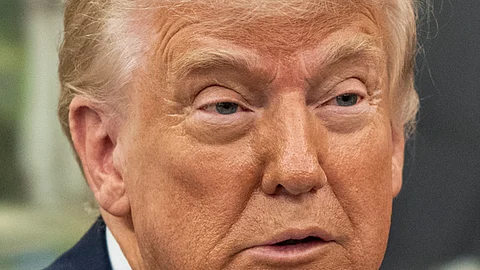Trump Unsure if New Sanctions on Russia Will Work as Moscow Unconcerned
Russia has largely dismissed U.S. President Donald Trump’s decision to shorten his ultimatum to end the war in Ukraine from 50 days to just 10. The threat of secondary sanctions and tariffs on Russia and its global trading partners has been met with indifference by both Russian officials and financial markets.
On Tuesday, Kremlin spokesman Dmitry Peskov acknowledged Trump’s comments but declined to offer substantive reaction, saying only, “We have taken note of the statement that President Trump made yesterday,” and added that he “would like to avoid commenting” further.
Trump, while meeting with British Prime Minister Keir Starmer in Scotland on Monday, announced that the 50-day deadline he set for Russia on July 7th would be reduced to just “10 or 12 days.” If Russia does not agree to a ceasefire in Ukraine by then, Trump warned of sweeping secondary sanctions and 100% tariffs on nations continuing to buy Russian energy.
Dmitry Medvedev, Deputy Chairman of Russia’s Security Council and often a proxy voice for President Vladimir Putin, responded directly to Trump’s ultimatum. Writing on X (formerly Twitter), Medvedev warned, “Trump’s playing the ultimatum game with Russia: 50 days or 10… He should remember two things: 1. Russia isn’t Israel or even Iran. 2. Each new ultimatum is a threat and a step towards war—not between Russia and Ukraine, but with his own country. Don’t go down the Sleepy Joe road!”
Medvedev’s statement, coupled with Peskov’s dismissal, suggests Moscow does not view Trump’s rhetoric as a serious policy threat. Russian financial markets appeared similarly unfazed. The Moscow Stock Exchange rose 2.7% following Trump’s initial 50-day warning, and global oil prices surged after his 10-day ultimatum—movements analysts say reflect more speculation than actual concern.
Speaking to reporters aboard Air Force One on Tuesday, Trump appeared to cast doubt on the efficacy of his own threats, admitting uncertainty over whether new sanctions or tariffs would meaningfully impact Russia. He added that the U.S. would increase oil production if global markets were disrupted.
Meanwhile, Trump's proposed 100% tariffs on countries buying Russian energy—such as China—appear to carry little weight with Beijing. On the same day as Trump’s latest threats, U.S. and Chinese officials agreed to extend their existing 90-day tariff truce, a sign that Washington is unwilling to launch another trade war with Beijing.

